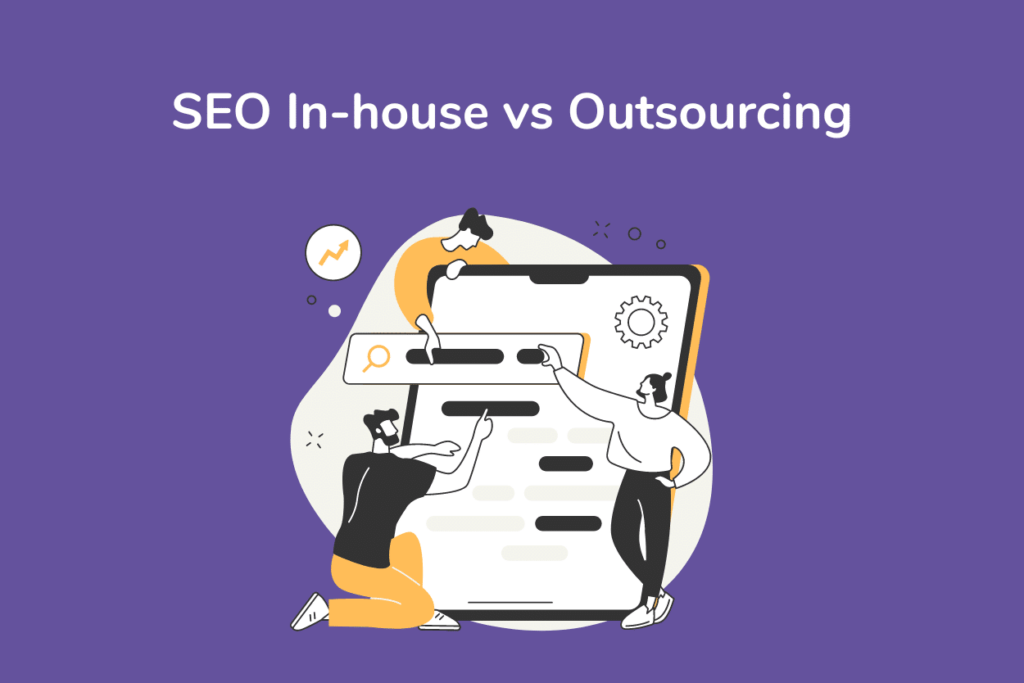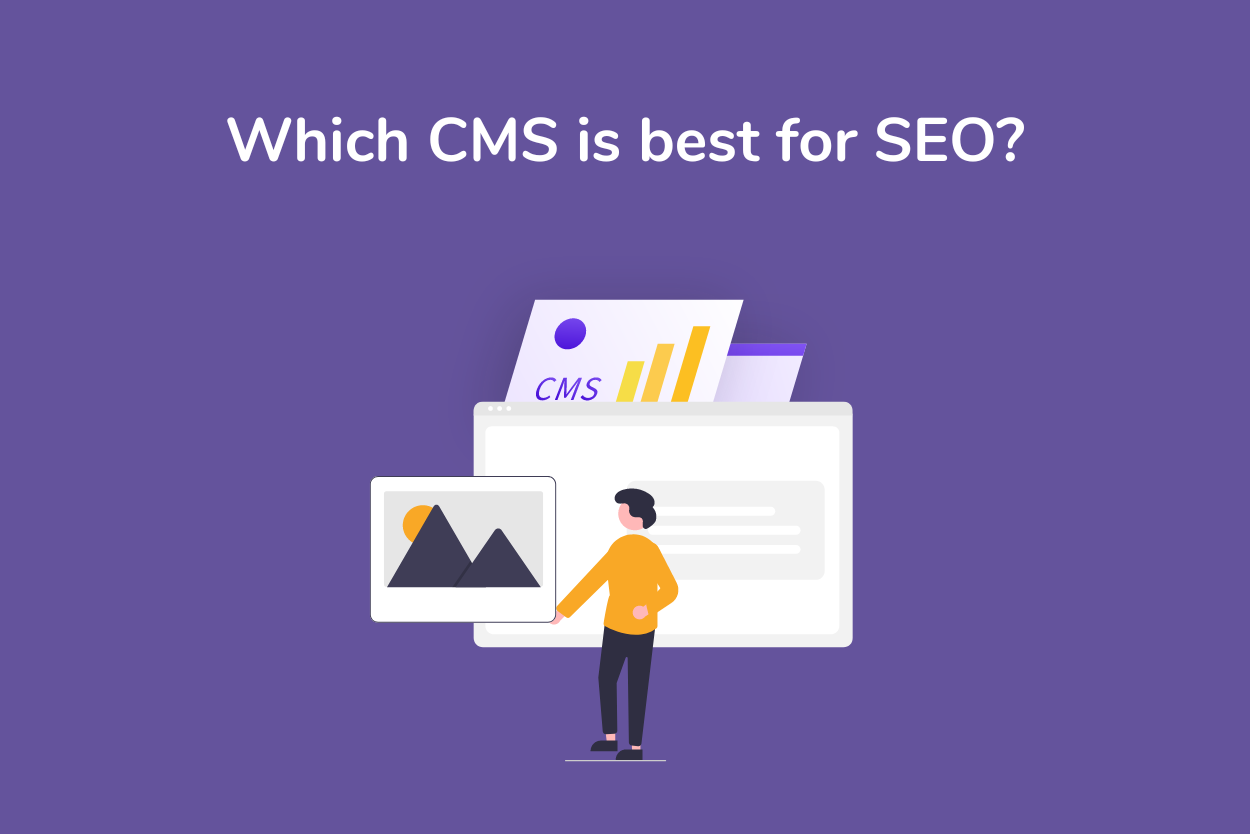Introduction
Search Engine Optimization (SEO) is an important part of any digital marketing plan because it has a direct effect on how visible and successful a business is online. When businesses want to improve their online visibility, they often face the decision of whether to handle SEO themselves or hire an outside company to do it.
You can read this blog post to learn more about the differences between in-house and outsourced SEO. It will help you choose the best choice for your business by weighing the pros and cons of each method.
Comparing SEO In house vs Outsourcing
When an employee or a specialized team within your company does SEO work, that’s called “in-house SEO.” These people are only interested in your business’s SEO and become very familiar with your brand and how you run your business.
When you hire an outside company or team of experts to handle your SEO efforts, this is called “outsourced SEO.” These companies have a lot of experience working with a wide range of clients and industries. They can use these broad insights to improve your SEO strategy.
Here’s a detailed table comparing the key differences between In-House and Outsourced SEO:
| Factor | In-House SEO | Outsourced SEO |
| Expertise | May vary depending on the skills of the team. Broad expertise may be limited. | Agencies often have a wide range of expertise due to diverse client experiences. |
| Cost | Can be high due to salaries, training, and SEO tools. | Potentially more cost-effective as costs are spread across multiple clients. |
| Control | High control over strategies and execution. | Less direct control, reliant on the agency’s management and reporting. |
| Scalability | Scaling up requires hiring more staff or investing more resources. | Easier to scale up or down as needed without major structural changes. |
| Flexibility | Adjustments and pivots depend on internal priorities and resources. | High flexibility in strategy adjustment, depending on contract terms. |
| Integration | Seamless integration with internal processes and culture. | May require effort to align agency efforts with company culture and processes. |
| Response Time | Quick to respond to internal changes or issues. | Response time can vary based on agency workload and communication setup. |
| Focus | Focused solely on your company’s objectives. | Works on multiple projects; might not be exclusively focused on your business. |
| Resource Allocation | Resources must be allocated and often shared within the company. | Resources like tools and expertise are provided by the agency. |
| Long-term Investment | Building an in-house team is a long-term investment in your business’s capabilities. | Outsourcing is often viewed as a cost-efficient solution for short to medium-term. |
Top 5 Questions to Ask Yourself When Deciding on Agency or In-House
- What are my business’s specific SEO goals and how complex are they?
- Do I have the resources to hire, train, and maintain an in-house team?
- How important is having control over every detail of my SEO strategy?
- Can my existing employees effectively manage an additional SEO workload?
- What is my budget for SEO, and how flexible is it?
Is In-House or Outsourced SEO Better for Me?
There are many things that are unique to your business that need to be looked at in order to decide whether in-house or outsourced SEO is better for you. To help you make an informed choice, here are some important things to think about:
1. Business Size and Resources
- Because they don’t have the money to hire and keep up a specialized in-house team, small to medium-sized businesses (SMEs) often gain more from outsourcing.
- Large companies might want an in-house team so they can keep a tight grip on tactics and make sure they work well with their current marketing efforts.
2. Budget
- When you do SEO in-house, you have to pay a lot of money up front for hiring people, training them, and buying SEO tools. You also have to pay salaries and licensing fees on a regular basis.
- When you outsource SEO, you usually pay a deposit or a project-based fee. This might be easier for businesses that don’t want to deal with the costs of a full-time team.
3. Expertise and Experience
- If your business needs very specific SEO understanding or if you’re in a very competitive field, it might be best to hire an agency with a lot of different experience and the latest techniques.
- If your SEO needs are pretty simple or you already have people on your team who are good at SEO, building an in-house team could be a good long-term investment.
4. Control and Integration
- When SEO is done in-house, the company has more control over daily tasks and can better integrate SEO with other business processes and the company’s culture.
- When you outsource SEO, you have to believe that the service will do a good job without your constant supervision. This can be a problem if your business wants to have full control.
5. Scalability and Flexibility
- Most of the time, agencies can quickly grow and change their strategies in response to changes in the market or success data. This gives them more flexibility with less disruption inside the company.
- If an in-house team doesn’t spend a lot of money on extra tools and staff, rapid scaling might be harder for them.
6. Long-term Strategic Value
- An in-house team isn’t just for SEO; it’s about building a group of people who really understand your business and can grow with it, which could give you more value in the long run if you handle them well.
- Outsourcing can be a way to meet short-term needs and fill in skill gaps without having to make long-term investments in staff.
Case Study

Background
HubSpot has always been at the head of inbound marketing, and it has a strong team of people working on SEO and content creation inside the company. But HubSpot needed outside help to grow its reach and keep improving its tactics in a digital world that is always changing.
The Challenge
HubSpot wanted to improve search engine results and get more organic traffic around the world, not just in English-speaking countries but also in countries where English wasn’t the main language. They had to make sure that their SEO strategies in all of these different markets were both in line with their brand’s style and also worked well in each area based on how people searched and what they liked.
The Solution
HubSpot worked with a number of SEO firms that were experts in both global SEO techniques and local market knowledge. These groups did the following:
- More in-depth keyword study that takes into account local languages and trends.
- Optimization of content to fit local culture differences and search habits.
- Technical changes need to be made to SEO to account for differences in how search engines work in different areas.
- Local platforms and publications were used in link-building strategies to boost domain authority in selected markets.
The Results
The collaboration led to remarkable outcomes:
- Increased organic reach: HubSpot saw a big rise in organic traffic from Latin America, Europe, and Asia, among other regions where people don’t speak English.
- Better engagement in local markets: HubSpot increased engagement measures like time on site and bounce rates by making content more relevant and appealing to local audiences by optimizing it for local markets.
- Better search rankings: HubSpot’s local SEO strategies helped it get better rankings for key terms in targeted regions, which helped it become more visible around the world.
Conclusion
Whether to do SEO in-house or hire someone else to do it for you is a big strategic choice that depends on a lot of things that are unique to your business, like your budget, size, industry, and long-term goals. The pros and cons of each method are different. When you do your own SEO, you have more control over the process and can better connect it with your business’s main tasks. This makes it easier to reach your long-term business goals. On the other hand, hiring an SEO firm gives you more freedom, the ability to grow, and access to a wide range of skills and cutting-edge tools, often at a lower cost than keeping a similar team in-house.
Finally, picking between in-house and outsourced SEO shouldn’t be seen as a one-size-fits-all option. Instead, it should be seen as a smart choice that fits your needs now and in the future. Businesses might even find that a hybrid method, where they use in-house resources for core tasks and outsource specialized tasks, works best. By giving careful thought to the specific needs and limitations of your business, you can pick an SEO strategy that fits your budget and sets your company up for success in the ever-evolving digital world.



